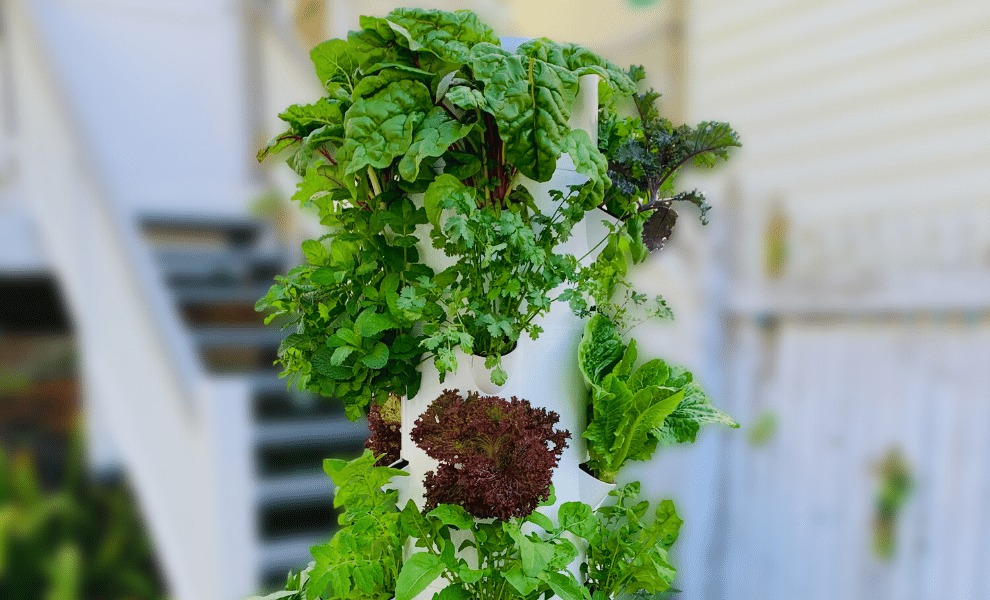
The benefits of growing your own in lockdown

Over the past 1.5 years, most of us have been in living in lockdowns of varying degrees for several months. Constrained to our houses, with restaurants, bars and cafes closed or operating well below full capacity and working from home mandates in place, there is no doubt that COVID-19 has caused a complete paradigm shift in the way we view our homes.
One of the most significant impacts has been that of how we view food, cooking and our household spaces, with people seeking out inspiration for ways to make their home more liveable and enjoyable – as a result the amount of time Australians are spending gardening has more than doubled in the past year.
As bleeding green thumbs, we are not surprised! The benefits of gardening and growing your own are endless – so if you're one of the 5 million Australians already thinking about growing your own food, here's a breakdown of the many benefits.
Physical health benefits
First and foremost, eating a diet rich with fruit and vegetables is the first step to any healthy lifestyle. However, a 2020 report from the Australian Bureau of Statistics (ABS) indicates Australians are only buying enough vegetables for 2.3 daily serves, which is well short of the recommended 5+ daily serves.
This number has declined in recent months, as people tend to eat more vegetables when out at restaurants and cafes. Yet the disruption of the food service sector during the pandemic has severely limited this avenue, and people are not buying more vegetables to compensate. Growing your own and having fresh fruit and vegetables available to pick all year round is the surest way to lift your daily intake above the recommended amount.
Furthermore, it is not commonly known just how much nutrients your fruit and vegetables lose when you buy them from the supermarket (or even the local market) shelf. In fact, spinach can lose 90% of its vitamin c content within 24 hours of harvest, and 50% of its folate and carotenoids within a week.
By the time you buy fruit and veg from the supermarket, most are at least a week old. Every hour that passes after harvesting, their nutritional value decreases rapidly – vegetables lose up to 77% of their vitamin c within a week of harvest if they are kept refrigerated.
The best way to maximise the nutritional value of your food, and ensure your 5+ servings are actually giving you the health benefits you need, is to grow your own.
Family benefits
Figuring out what to feed the kids, whether they're picky eaters or not, has been nothing short of a daily nightmare for many parents over the past year. However studies show that kids who are picky eaters may be keener to try new foods that they’ve helped to grow. Watching the plants sprout and grow and waiting until fruit and veggies are ripe and ready to eat can help build their enthusiasm and excitement about healthy foods.
Growing your own fruit, vegetables and herbs will encourage you and your family to eat seasonally, add more variety to your diet, encourage you to prepare homemade healthy dishes and learn to appreciate fresh produce.
Mental health benefits
Getting your green thumb on can have a surprising number of health benefits for you and your family.
According to countless sources, gardening calms the emotional side of the brain and can significantly reduce stress, reaching finding that:
- 66% of people feel a sense of satisfaction when gardening
- 61% feel a sense of accomplishment when gardening
- 58% of people experience improved mood when gardening
Gardening provides a connection to our world, and many people feel that connection in a visceral way when they eat food they've just harvested. Having a garden really means having a relationship with the food you're consuming, helping us reconnect with the environment around us.
Environmental benefits
Numerous reports and studies have found that coronavirus has focused our minds on helping to create a better, healthier world.
Take a 2020 global survey by management consultancy firm Accenture. It said that consumers "have dramatically evolved", and that 60% were making more environmentally friendly, sustainable, or ethical purchases since the start of the pandemic, with 9 out of 10 likely to continue doing so.
Yet, in Australia, we have a huge issue with our food system, with half of all fruit and vegetables produced wasted (that’s 3.7 trillion apples).
Food is lost or wasted across the entire supply chain; 1/3 in our homes, 1/3 from farms and 1/3 from retail and hospitality.
40% of fruit and vegetables are rejected by the supermarket and thrown into landfill before they even make it onto the shelves - enough to fill 450,000 garbage trucks.
In our homes, 20% of the fruit and vegetables bought at the supermarket get thrown in the bin – that’s 1 in every 5 shopping bags which equates to $3,800 worth of groceries per household, per year.
When you grow your own, you only pick what you eat, which eliminates food wastage in your household. If everyone grew just 20% of what they ate, the impact on the environment would be game-changing.
Undoubtedly these are benefits that all of us want to enjoy. Yet traditional forms of gardening make growing your own unfeasible for many of us – whether due to a lack of time, space or experience. In fact. according to Google search data, there has been a 40% increase in global online searches for balcony gardening solutions over the last 12 months.
An Airgarden allows anyone to grow 30 plants in less than 1 square metre, with just 10 minutes of simple maintenance per week. Using aeroponic technology (which cases plants to grow 3X faster), it also yields enough produce to make a significant dent in your weekly supermarket shop.







